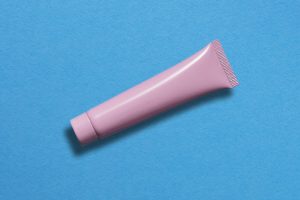Depression is among the several mental disorders that affect approximately 57.8 million American adults. Depending on the severity of their condition, people may need therapy, lifestyle changes, medication, or a mixture of two or more options. Meanwhile, some may wonder if they can take Wellbutrin and Zoloft together.
These brand names are common medications that are prescribed for various mental illnesses. In this article, we explore how each medicine works so you can understand why some doctors recommend one or both.
Wellbutrin
Wellbutrin is a prescription drug with the generic name bupropion. It falls under the norepinephrine–dopamine reuptake inhibitor (NDRI) class. Other brand names include Zyban, Forfivo, and Aplenzin. As a medicine, it can take the form of bupropion hydrochloride or bupropion hydrobromide. Your doctor will decide which one is good for you. Doctors can prescribe one of three types of Wellbutrin with the active ingredient bupropion hydrochloride. These types include:
Immediate Release (IR): Patients can absorb Wellbutrin IR relatively quickly. These come in 75 mg or 100 mg tablets. Doctors might prescribe them at least twice daily, giving between four and six hours between each dose. It will still depend on the doctor’s instructions.
Sustained Release (SR): Patients may also take Wellbutrin SR twice daily, usually in the morning and mid-afternoon. They are either 100, 150, or 200 mg tablets. Since Wellbutrin SR is a sustained-release drug, the body absorbs it quickly. It can take 12 hours to release ingredients.
Extended Release (XL): Wellbutrin XL releases active ingredients slowly, which can take up to 24 hours. As such, the medicine stays in a patient’s system throughout the day. For example, doctors might prescribe 50 or 300 mg that patients will take once in the morning.
Doctors can also prescribe bupropion hydrobromide, which usually comes under the brand name Aplenzin. Extended-release tablets of this type of bupropion are either 174 mg, 348 mg, or 522 mg. Patients would take them once a day.
Zoloft
Zoloft is the brand name of the generic medication sertraline, which comes in tablet form between 25 mg and 100 mg doses and liquid form with 20 mg/mL doses. Doctors usually prescribe one daily dose of sertraline.
Patients typically begin at low doses, gradually increasing over several weeks. They can also take the drug with or without food.
Sertraline is an antidepressant under the selective serotonin reuptake inhibitor (SSRI) class. SSRIs work by blocking the reuptake or reabsorption of serotonin into the neurons. Serotonin is a hormone that plays a crucial role in a person’s mood. Sertraline is usually more potent than other SSRIs but may have moderate drug interaction issues.
What Conditions Can Wellbutrin and Zoloft Treat?
Wellbutrin and Zoloft are approved treatments for major depressive disorder (MDD). Common symptoms of depression that may suggest a person’s need for either medication usually include:
- Negative feelings
- Unhappy moods
- Unenthusiastic behavior
- Psychomotor conditions
- Changes in sleeping and eating habits
Meanwhile, Wellbutrin and Zoloft can treat other conditions.
Read Also: All You Need to Know About Zoloft Withdrawal
What Does Wellbutrin Treat?
The Food and Drug Administration (FDA) approved bupropion for treating the following conditions:
- Seasonal Affective Disorder (SAD)
- Cessation of smoking
Some doctors may prescribe bupropion as an off-label treatment, meaning the FDA has not approved it for treating those conditions, although there are expert accounts that suggest its effectiveness.
These conditions include:
- Bipolar Disorder
- Attention Deficit Hyperactivity Disorder (ADHD)
- Sexual Dysfunction
For off-label treatments, mental well-being specialists must explicitly state why they prescribe the drug for a patient’s condition. In addition, they must justify why the medicine is appropriate and disclose existing research on the subject. Moreover, they must mention other options before going this route.
What Does Zoloft Treat?
The FDA approved sertraline (Zoloft) as a medical treatment for a handful of conditions associated with mental well-being, including:
- Posttraumatic Stress Disorder (PTSD)
- Panic Disorder
- Social Anxiety Disorder
- Obsessive-compulsive Disorder (OCD)
- Premenstrual Dysphoric Disorder (PMDD)
Off-label treatments using sertraline include:
- Binge Eating Disorder (BED)
- Bulimia Nervosa
- Generalized Anxiety Disorder (GAD)
What Are the Main Differences Between Wellbutrin and Zoloft?
Other than the conditions they treat and their classification, the main differences Wellbutrin and Zoloft are the potential drug interactions they may cause, and the side effects a person may experience after taking one or the other.
Essentially, it comes down to a patient’s compatibility with either option and specific lifestyle. For example, Zoloft tends to cause sexual side effects. If that is an issue with the person, they may prefer Wellbutrin for their depression.
However, Wellbutrin has side effects that may affect the patient’s quality of life. As such, they must consult with their healthcare provider to determine a solution if they experience depression symptoms. Depending on the circumstances, a patient may take one over the other or both.
Can You Take Wellbutrin And Zoloft Together?
Some healthcare providers may prescribe Wellbutrin and Zoloft together for depression. However, experts usually have their patients switch between antidepressants before they add a second medicine to their prescription.
Wellbutrin and Zoloft work differently, justifying why some healthcare providers prescribe them together. They may do so if a person taking specific antidepressants experiences no significant improvements after the prescribed dosage. While it may work for certain patients, combining both medications may increase a patient’s chances of experiencing seizures. As such, no one should take Wellbutrin and Zoloft simultaneously unless their medical provider explicitly instructs them.
Benefits of Combining Wellbutrin and Zoloft Together
For patients whose doctors prescribe Wellbutrin and Zoloft, combining the two medications may offer a few advantages for their specific conditions.
Here are some benefits to consider:
Improved MDD Treatment: Both brands are FDA-approved MDD treatments. Depending on the severity of a patient’s depression, the two medicines could be more effective than either one alone.
Maximize Individual Effects: Combining Wellbutrin and Zoloft can help patients experience the best of each medicine’s effects. These antidepressants fall under unique drug classes and target different conditions besides depression.
For example, suppose a patient lives with ADHD on top of MDD, but Wellbutrin alone does not improve their depression symptoms. Since Zoloft has no known effects for ADHD, taking both together may be a good solution.
Alleviate Side Effects: Just as each medicine offers unique effects, they also come with side effects. However, taking them together may help offset some side effects associated with each antidepressant. Each medicine’s effects and side effects would work together and against each other to balance the overall outcome.
Warnings of Wellbutrin and Zoloft
Both Wellbutrin and Zoloft have FDA Black Box Warnings, which are the highest and strictest safety cautions the association assigns to medicines. Whether an adult or pediatric patient uses either medication for treating MDD, their risk of suicide may increase with or without the antidepressant.
Some short-term antidepressant studies revealed how the suicidality risk in children, adolescents, and young adults was higher when researchers compared them to placebo. However, these increased rates did not show in adults over 24.
Meanwhile, older adults of at least 65 years old taking antidepressants showed a decreased suicidality risk. Other potential conditions that the FDA warns patients about taking antidepressants include:
- Aggressiveness
- Anxiety
- Insomnia
- Irritability
- Restlessness
Should symptoms of these conditions emerge after taking Wellbutrin or Zoloft, according to a patient’s primary healthcare provider, they, their family, or their caregiver must report to their provider about them immediately.
In addition, worsening symptoms, increased suicidality, and behavioral changes during the initial treatment may suggest incompatibility with the medicines, requiring a different dosage or treatment altogether.
Can I Use Wellbutrin and Zoloft While Pregnant?
Taking Wellbutrin and Zoloft during pregnancy brings up some concerns. Pregnant individuals who have MDD and are looking for treatment methods must discuss their options carefully with their primary healthcare provider before proceeding.
There are some risks associated with taking medications while pregnant. However, taking bupropion (Wellbutrin) while pregnant may be beneficial if the pregnant person intends to use the antidepressant for its smoking cessation effects. Doctors typically only recommend the treatment if other therapies do not work first.
Meanwhile, those who take SSRIs like sertraline while pregnant have a higher risk of developing persistent pulmonary hypertension in the unborn infant. Experts associate it with antidepressant usage during a person’s second half of pregnancy. This condition is potentially fatal.
In addition, taking antidepressants of any kind during the second and third trimesters of pregnancy comes with a risk of premature birth. Babies born before 37 weeks will not be fully developed and could face health issues in the long run.
Another risk of taking bupropion and sertraline during pregnancy is how the medicines can pass into the mother’s breast milk. As such, breastfeeding while taking the medication may expose the infants to the side effects associated with Wellbutrin and Zoloft.
Wellbutrin and Zoloft Drug and Food Interactions
Patients can take Wellbutrin and Zoloft on an empty stomach or with food. However, healthcare providers who prescribe either medicine might advise their patients to avoid certain foods that contain the primary active ingredients of each medicine while undergoing therapy to help prevent inadvertently taking a higher dose of the drug.
Likewise, patients must minimize their consumption of foods and beverages that produce similar effects to their medicines to avoid the associated side effects. For example, patients taking bupropion may experience irritability and difficulty with sleep. As such, it would be beneficial for them to avoid taking large quantities of caffeine.
Patients taking sertraline must avoid eating grapefruit. Experts have noted how grapefruit can increase the amount of sertraline in the body. Whether the patient takes the fruit or drinks its juice, they could increase the risks of side effects associated with Zoloft since they are already taking prescribed doses.
Other things one should avoid while taking Wellbutrin and Zoloft are alcohol and illegal drugs, as they may cancel the medicine’s benefits and boost the patient’s chances of experiencing seizures. Similarly, these substances may increase the medicine’s adverse effects, such as sedation, affecting the patient’s daily activities. Additionally, patients must avoid taking monoamine oxidase inhibitors (MAOIs) within two weeks of taking bupropion or sertraline.
MAOIs include:
- isocarboxazid (Marplan®)
- phenelzine (Nardil®)
- selegiline (Emsam®)
- tranylcypromine (Parnate®)
Other specific drugs that healthcare experts advise patients to avoid taking while on Wellbutrin include:
Other Medicines Containing Bupropion: Besides Wellbutrin, brands containing bupropion include
- Aplenzin®
- Forfivo XL®
- Zyban®
Medicines That May Cause Seizures: Combining certain drugs with bupropion may increase the risk of seizures. Patients must notify their doctor and pharmacist if they take other antidepressants,
- antibiotics (Cipro®),
- antipsychotics,
- benzodiazepines (Ativan®),
- hypoglycemic agents (insulin),
- isoniazid, steroids,
- theophylline,
- tramadol.
Body-altering Medicines: Some medicines change the way bodies react to bupropion, including
- carbamazepine (Tegretol® and Equetro®),
- cimetidine (Tagamet®),
- efavirenz (Sustiva®),
- lopinavir (Kaletra™),
- nelfinavir (Viracept®),
- phenobarbital,
- ritonavir (Norvir®), and
- phenytoin (Dilantin®).
Conversely, bupropion can change the way the body reacts to other medicines, including:
- Atomoxetine (Stratterra®)
- Codeine, tamoxifen,
- Tetrabenazine,
- Thioridazine (Mellaril®)
- Tramadol (Ultram®)
- Tricyclic antidepressants
While on Zoloft, patients should avoid the following:
Other Medicines That Increase Serotonin: Patients may experience serotonin syndrome when using sertraline with other serotonin-containing drugs, such as other antidepressants including:
- Triptans or migraine medicines (Imitrex®)
- Pain medicines like tramadol (Ultram®)
- Linezolid antibiotics (Zyyox®)
Pimozide: Patients taking pimozide (Orap®) to control their motor disorders must avoid taking Zoloft or other antidepressants that primarily contain sertraline.
Medicines That Cause Bleeding: Sertraline can increase the effects of drugs that lead to bleeding, such as:
- Aspirin
- Ibuprofen (Advil® and Motrin®)
- Warfarin (Coumadin®)
Concentrates With Alcohol Content: Patients must avoid combining sertraline liquid with disulfiram (Antabuse®) since it contains alcohol.
Why Are Zoloft and Wellbutrin Often Prescribed Together?
Healthcare professionals may prescribe Zoloft and Wellbutrin since each medicine works differently. Likewise, patients react differently to each medication.
Zoloft and Wellbutrin may offer more significant effects against the patient’s depression than either one could do alone. However, it will all depend on how compatible the combination is for the patient and the conditions treated.
In What Cases Are Wellbutrin and Zoloft Used Together?
Patients may take Wellbutrin and Zoloft when the medicines fail to achieve favorable results individually. Since both drugs are FDA-approved medicines for MDD, combining their effects can help patients improve their condition. Moreover, depression may come with other mental issues that require both medications to combat. Combining both medicines could help address all needs associated with each treatment.
Is Wellbutrin or Zoloft More Effective?
There is no one answer to this question, as every patient has a unique situation in which one or the other may be more effective. Essentially, Wellbutrin and Zoloft have no significant differences in terms of effectiveness. However, since the side effects of each vary considerably, a healthcare professional can determine the best medication for the patient.
Read Next: How Long Does It Take for Lexapro to Work?
Common Side Effects of Wellbutrin Vs. Zoloft
Some side effects associated with Wellbutrin include:
- Changes in mental health
- Seizures
- High blood pressure
- Mania (affects people with bipolar disorder)
- Meanwhile, patients taking Zoloft may experience the following:
- Abnormal heart rhythms
- Bleeding
- Extremely high energy and excitement
- Low sodium levels
- Serotonin syndrome
- Withdrawal symptoms upon abrupt discontinue
Frequently Asked Questions (FAQs)
Some healthcare providers might prescribe Wellbutrin and Zoloft together because they are complementary medicines. However, simultaneously taking them would cover important bases in treating a patient’s MDD.
The best dosage for a person taking either medicine is the one their doctor prescribes. Wellbutrin and Zoloft come in different dosages to help treat the severity of the person’s condition. Usually, patients start with small doses before working their way up to higher ones.
Yes, a person can take Zoloft and Wellbutrin at the same time. If a doctor prescribes both medicines, it is ideal for taking them simultaneously instead of at different times because of how the body absorbs the active ingredients.
A patient can take those specific dosages of bupropion and sertraline together if their doctor prescribes it. Other patients have reported how this exact dose helped them improve their MDD.
Yes, patients can take Wellbutrin with Zoloft without worrying about safety. Doctors may prescribe both at the same time to help counteract each medication’s side effects, particularly the sexual side effects of Zoloft.
Yes, taking Wellbutrin or other bupropion antidepressants may help cancel the sexual side effects of Celexa or citalopram antidepressants.
Yes, if the patient’s doctor prescribed Zoloft and Wellbutrin combined, it should be safe to take both medications since they work differently.
The Bottom Line
Wellbutrin and Zoloft are FDA-approved medicines for treating MDD and other mental health conditions. People may wonder if they can take them together, possibly with the correct prescription. Each medication works uniquely and offers different effects, so taking both may make sense if the patient’s circumstances call for them. However, bringing them together may also boost the side effects of taking antidepressants, including an increased risk of seizures. Any patient must consult their doctor before combining multiple medicines simultaneously.





